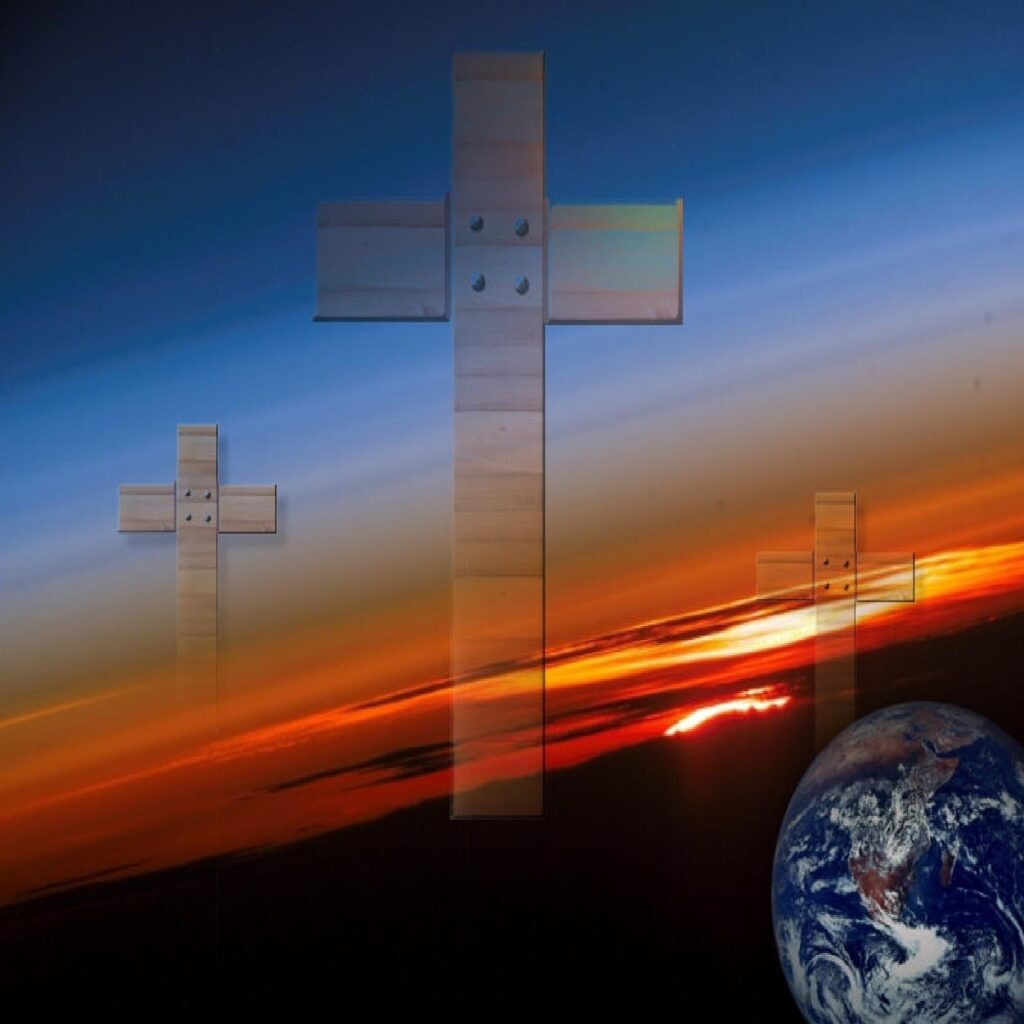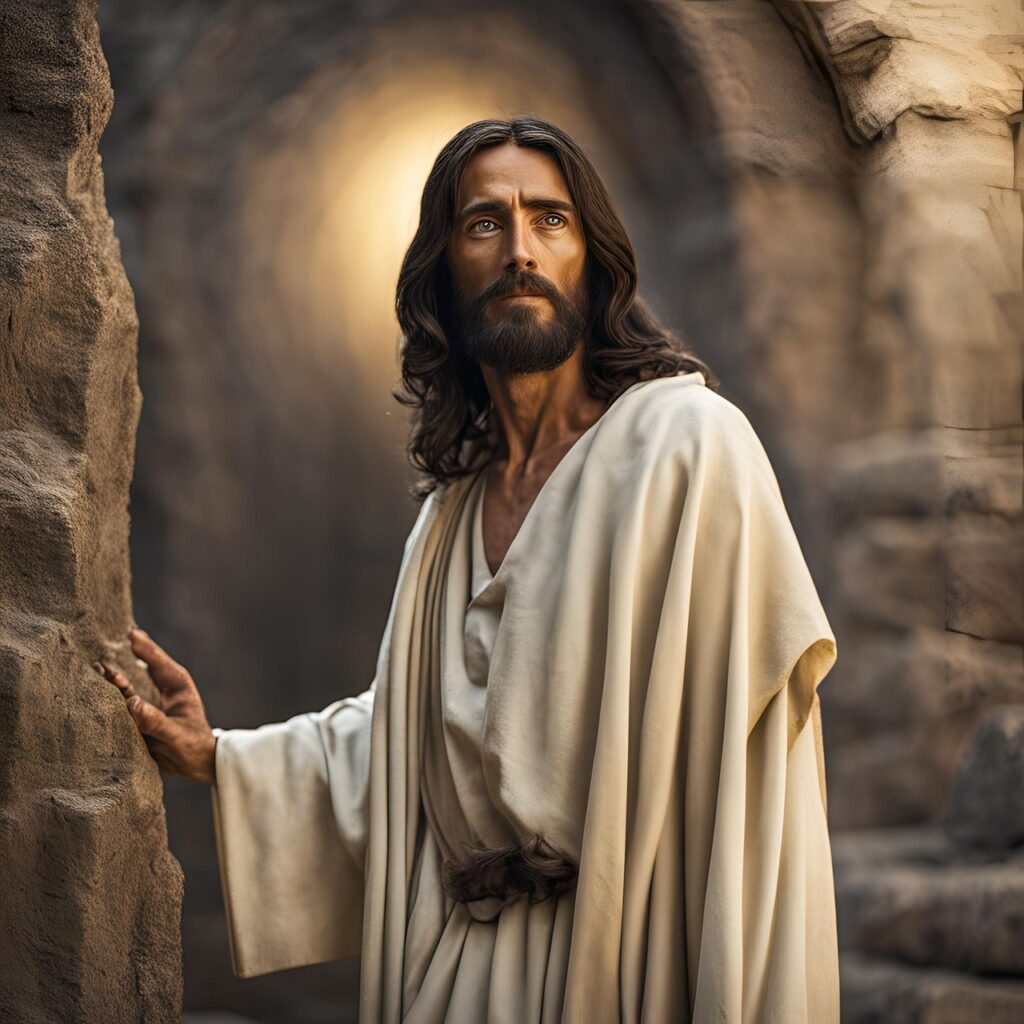Reflection by Mons. Enrique Díaz: Discover your ways to us, Lord
First Sunday of Lent

Mons. Enrique Díaz Díaz shares with the readers of Exaudi his reflection on the Gospel of this Sunday, February 18, 2024, entitled: “Discover us, Lord, your ways”
***
Genesis 9, 8-15: “I will put my rainbow in the sky as a sign of my alliance with the earth”
Psalm 24: “Reveal to us, Lord, your ways”
I Peter 3, 18-22: “The water of the flood is a symbol of the baptism that saves them”
Saint Mark 1, 12-15: “He was tempted by Satan and the angels served him”
This year Lent surprises us very early: a time of conversion, a time of silence, a time of change. Pope Francis in his message invites us to make Lent that special time that God grants us, a time of reflection, of “desert”, where the people of Israel still carry in their minds the slavery of Egypt that they cannot shake off despite his misfortunes. The Pope tells us: “Lent is the time of grace in which the desert once again becomes – as the prophet Hosea announces – the place of first love (cf. Hos 2:16-17). God educates his people to abandon their slavery and experience the passage from death to life. Like a husband, he draws us back to himself and whispers words of love to our hearts.”
In the biblical tradition we find these two meanings of the desert: first, it manifests itself as a place of purification, solitude, and recollection, which helps an inner change. On the other hand, it is also presented to us, as the Pope makes us reflect, as the place of reconciliation and meeting where he takes his beloved to show her all his love. Lent would have these two profound meanings for each of us. Find a moment of inner silence where we find ourselves, where we can recognize what is in our hearts, where we face our own fears… How we change when we meet ourselves! A friend recently told me that, having never been seriously ill, he did not know what it was like to be in a hospital. One of his strongest experiences was when they stripped him of his clothes, left him naked and put him only in one of those green, sterilized “robes” that are given to the sick. “It was like a part of me was stripped away.” I told him that it was the other way around, “It’s as if they let you find yourself, as you truly are: without clothes, without titles, without appearances…” Well, part of that is Lent and the meaning of the desert: stripping ourselves of everything exterior and present ourselves as we really are before God.
But also the desert in several biblical passages appears as a place where that love of reconciliation can be expressed. He tells us in Hosea that the Lord will look for his “beloved” to rescue her from her infidelities, and although she has prostituted herself, “but I am going to seduce her, I will take her to the desert and I will speak to her heart” (Hos 2, 16) to remind her and recover love first, to resume the marriage that has been established, to take her again as his wife forever, “I will espouse you to me in justice and in right, in love and in compassion, in faithfulness” (Hos 2, 21). Desert and Lent have this strong experience of the love of God that is faithful despite our infidelities, that remains firm, and that calls us to recover love first.
But the desert is also the place of temptation. It is significant that the verse before this small pericope is the baptism of Jesus, and that Saint Mark tells us that “immediately the Spirit urged Jesus to withdraw into the desert.” In the desert, Jesus will be able to taste the joy of being the Son of God expressed in baptism, but also in the desert he will experience temptation. This proximity of greatness and misery baffles many Christians. We would like that once our dedication to the Lord has been proven, there could be no temptation or turning back, but the path is full of falls, struggles, encounters and disagreements. Saint Mark, unlike Luke and Matthew, does not tell us what temptations Jesus suffered, and he leaves us a wide field to imagine our own temptations. What are the temptations that make us forget the love of God and the love of our neighbor? We would have to start with that ease of adapting the gospel to our own interests. We listen to the Word, but as long as it does not worry us or disturb us too much, as long as it is in accordance with our way of living and does not question our selfishness and injustices. Likewise, we welcome the idea of a pleasing and benevolent god, but we do not accept a God who questions our lives, who demands justice from us with our brother, who rejects our corruption and our bribes. We are tempted to look for a god who pleases us, to our liking, who covers our gaps, not a God who saves us, a God who is the father of all equally, who invites us and demands brotherhood from us.
John is in prison, and Jesus seems to continue his mission. But, although the preaching and mission of the Baptist continues, it allows us to perceive a great difference: the Baptist preached conversion, it is true, but now Jesus does it with greater urgency, since the time has been fulfilled and the Kingdom of God is near. Furthermore, conversion becomes concrete in a positive attitude, not only repentance, but a drastic change of life, since now we must believe in the Gospel. This is how we can begin this new period of the year: seeking to change (metánoia), change the heart, the mind, the ways of acting, but for something very positive: believing in the Good News, believing in the Gospel, believing firmly in Jesus. It is the meaning of Lent: to leave our temptations, our securities and our misery, to launch ourselves into following Jesus. May we make this time of Lent something new, an extraordinary time of following, discipleship and learning together with Jesus.
What specifically does Jesus call us to in this Lent? How do we look for moments of desert to find ourselves in solitude? Does experiencing that unconditional love of God lead us to repentance and conversion? What attitudes should we change?
Grant us, Good Father, to experience your unconditional love in such a way during this time of Lent that it helps us progress in the knowledge and following of your Son Jesus. Amen.
Related

Reflection by Bishop Enrique Díaz: The Lord’s mercy is eternal. Alleluia
Enrique Díaz
27 April, 2025
5 min

After Eight Days Jesus Arrived: Commentary by Fr. Jorge Miró
Jorge Miró
26 April, 2025
3 min

The Perspectivas del Trabajo Foundation is founded with the aim of promoting virtues for professional development
Exaudi Staff
25 April, 2025
2 min

Reflection by Bishop Enrique Díaz: Alleluia, alleluia
Enrique Díaz
20 April, 2025
5 min
 (EN)
(EN)
 (ES)
(ES)
 (IT)
(IT)

